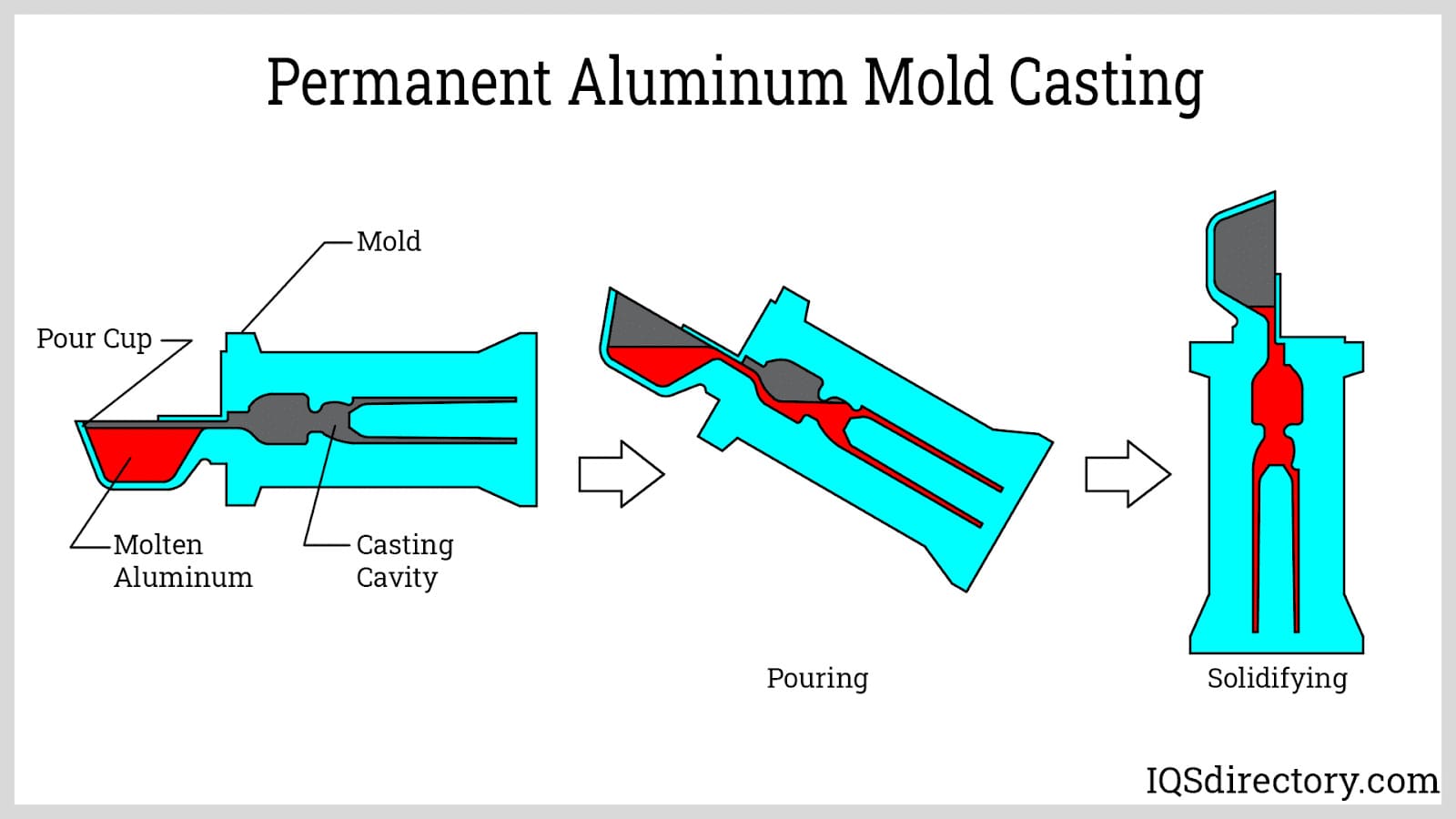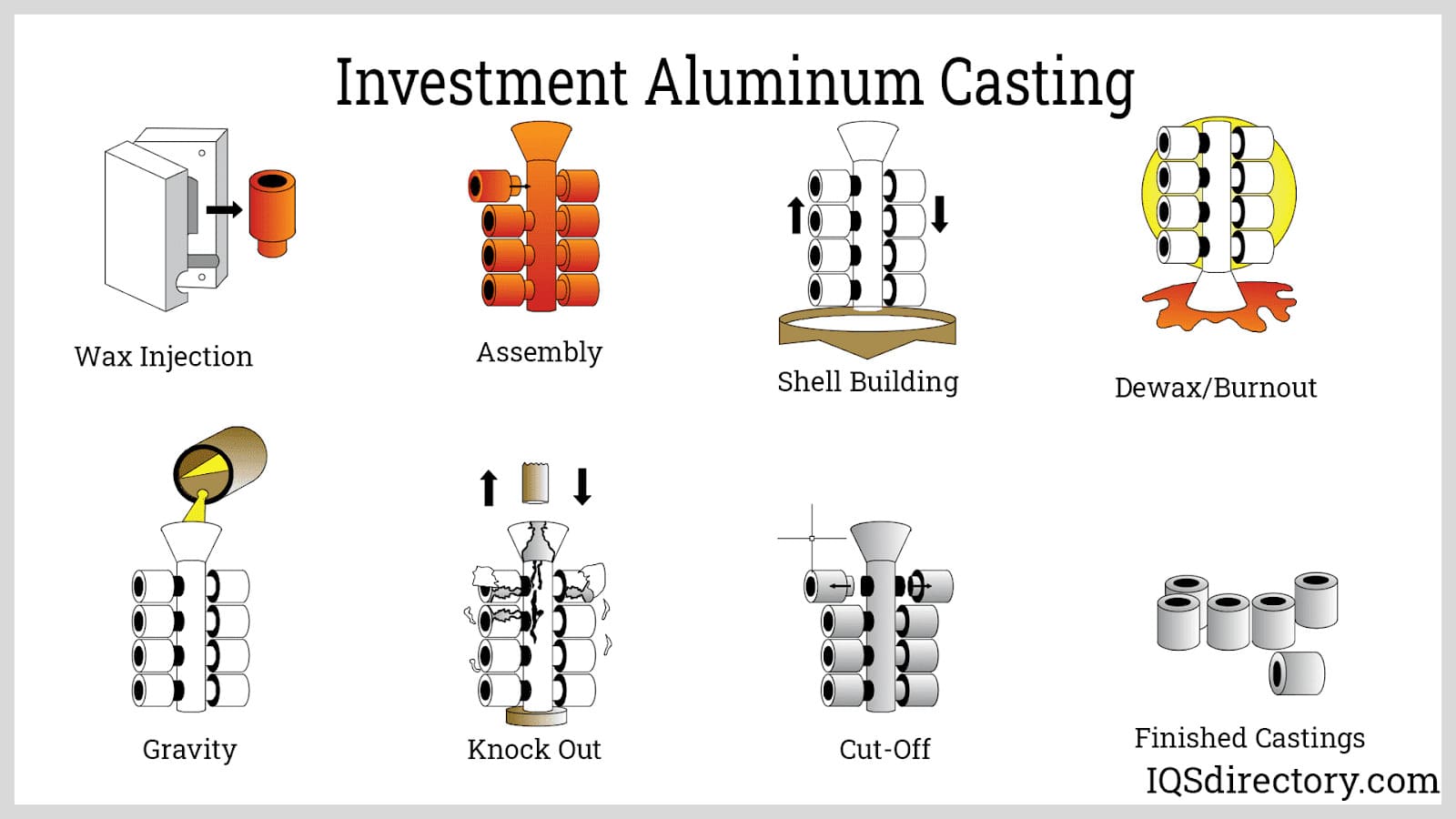Stahl Specialty Company - An Overview
Table of ContentsFascination About Stahl Specialty CompanyThe Ultimate Guide To Stahl Specialty Company4 Simple Techniques For Stahl Specialty Company10 Simple Techniques For Stahl Specialty CompanyThe Of Stahl Specialty Company
The subtle difference exists in the chemical web content. Chemical Contrast of Cast Aluminum Alloys Silicon advertises castability by minimizing the alloy's melting temperature level and boosting fluidness throughout spreading. It plays an essential function in enabling intricate mold and mildews to be loaded properly. Additionally, silicon adds to the alloy's strength and wear resistance, making it useful in applications where resilience is vital, such as vehicle components and engine parts.It additionally improves the machinability of the alloy, making it simpler to refine into finished products. By doing this, iron contributes to the general workability of light weight aluminum alloys. Copper boosts electrical conductivity, making it advantageous in electric applications. It additionally boosts corrosion resistance and contributes to the alloy's general strength.
Manganese adds to the stamina of aluminum alloys and improves workability. It is typically made use of in functioned light weight aluminum items like sheets, extrusions, and profiles. The presence of manganese help in the alloy's formability and resistance to splitting throughout construction processes. Magnesium is a light-weight aspect that supplies stamina and impact resistance to aluminum alloys.
It enables the manufacturing of lightweight elements with excellent mechanical residential properties. Zinc improves the castability of light weight aluminum alloys and aids regulate the solidification procedure during casting. It enhances the alloy's stamina and solidity. It is frequently located in applications where complex forms and fine details are essential, such as attractive spreadings and specific auto components.
The 5-Minute Rule for Stahl Specialty Company
Since aluminum-silicon alloys have excellent casting buildings, high gas properties, basic procedures, and exceptional deterioration resistance, aluminum-silicon alloys are most generally used in the die-casting industry at home and abroad. At the very same time, aluminum-silicon alloys are likewise relatively very early and widely identified alloys developed and utilized in die-casting. After continual research and renovation, a lot of the existing worldwide mainstream aluminum-silicon alloys have been finalized and are nothing greater than A356, A360, A380, ADC12, B390, and A413.
The key thermal conductivity, tensile toughness, return stamina, and prolongation vary. Select suitable basic materials according to the efficiency of the target item generated. Amongst the above alloys, A356 has the greatest thermal conductivity, and A380 and ADC12 have the most affordable. The tensile limit is the contrary. A360 has the most effective yield strength and the greatest elongation rate.

8 Simple Techniques For Stahl Specialty Company
In accuracy casting, 6063 is appropriate for applications where intricate geometries and premium surface area finishes are critical. Examples include telecommunication rooms, where the alloy's superior formability allows for smooth and visually pleasing styles while keeping structural integrity. In official source a similar way, in the Illumination Solutions market, precision-cast 6063 parts develop sophisticated and reliable illumination components that call for detailed shapes and excellent thermal efficiency.
(https://fliphtml5.com/homepage/stahlspecialc)
It causes a better surface area finish and far better corrosion resistance in A360. Additionally, the A360 displays exceptional prolongation, making it perfect for complicated and thin-walled elements. In precision spreading applications, A360 is fit for industries such as Customer Electronics, Telecommunication, and Power Devices. aluminum foundry. Its enhanced fluidity permits complex, high-precision elements like smart device cases and communication gadget housings.

In accuracy spreading, aluminum 413 beams in the Consumer Electronic Devices and Power Tools industries. It's frequently utilized to craft elaborate parts like smartphone housings, video camera bodies, and power tool casings. Its precision is remarkable, with tight resistances up to 0.01 mm, making certain perfect item assembly. This alloy's superior rust resistance makes it an outstanding selection for outside applications, making certain resilient, sturdy items in the pointed out industries.
The 10-Second Trick For Stahl Specialty Company
When you have determined that the light weight aluminum die casting procedure appropriates for your job, a critical next step is choosing one of the most proper alloy. The aluminum alloy you choose will significantly influence both the spreading process and the residential or commercial properties of the final item. As a result of this, you must make your choice meticulously and take an educated strategy.
Determining one of the most appropriate aluminum alloy for your application will certainly mean evaluating a wide variety of features. These comparative alloy attributes follow the North American Pass Away Spreading Organization's standards, and we have actually split them into 2 groups. Aluminum Casting. The initial classification addresses alloy qualities that influence the production process. The second covers attributes influencing the residential or commercial properties of the end product.
The alloy you choose for die spreading straight affects numerous facets of the casting procedure, like how simple the alloy is to work with and if it is prone to casting problems. Warm fracturing, additionally understood as solidification splitting, is a regular die spreading issue for light weight aluminum alloys that can lead to interior or surface-level rips or splits.
Stahl Specialty Company Things To Know Before You Get This
Certain aluminum alloys are much more at risk to warm cracking than others, and your choice must consider this. One more typical defect discovered in the die spreading of light weight aluminum is pass away soldering, which is when the cast stays with the die walls and makes ejection difficult. It can damage both the actors and the die, so you should seek alloys with high anti-soldering residential or commercial properties.
Rust resistance, which is already a noteworthy attribute of light weight aluminum, can differ substantially from alloy to alloy and is a vital characteristic to consider relying on the environmental problems your item will certainly be revealed to. Wear resistance is an additional property commonly looked for in light weight aluminum items and can differentiate some alloys.